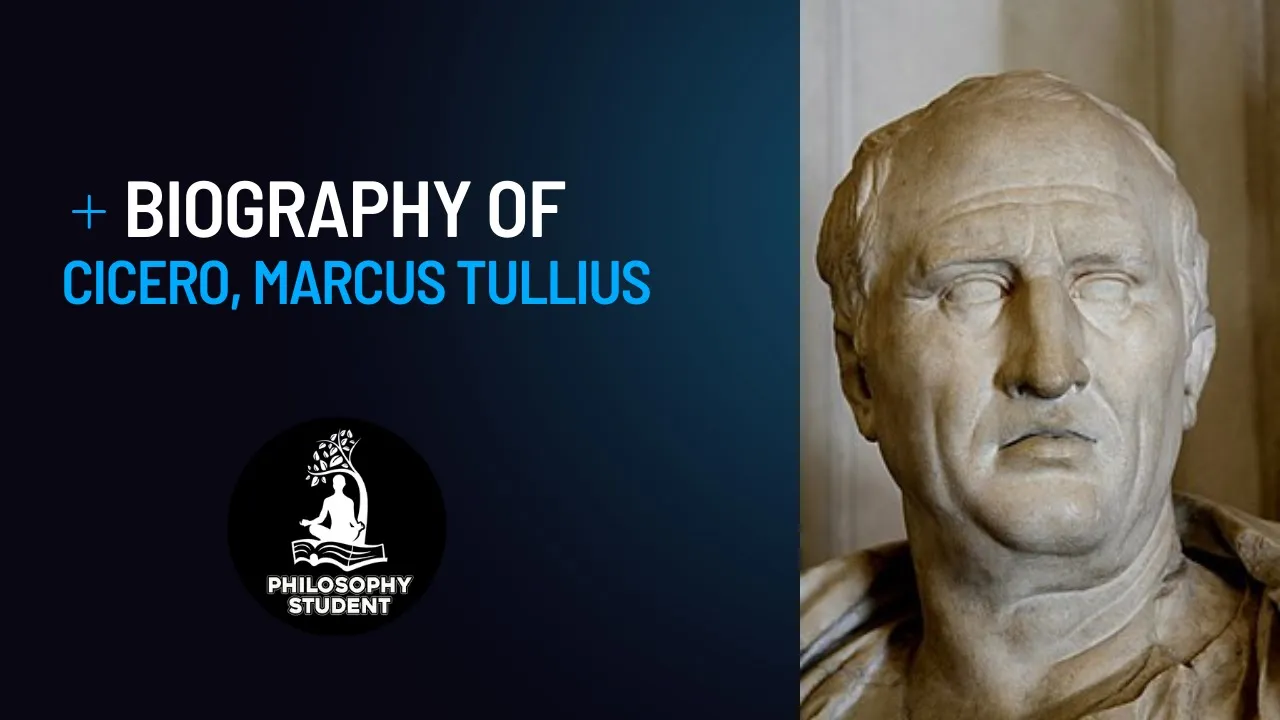Although best known as a Roman orator, lawyer, and statesman, renowned as a champion of the Roman republic in opposition to the establishment of an empire, Cicero was a rhetorician and an Academic Skeptic philosopher. The skeptical period of Platonic philosophy spanned approximately 266 to 90 BC in the Academy Plato had founded in Athens about 387 BC. In contrast to the established school of skepticism, the so-called Pyrrhonists, the Academic Skeptics did not deny the possibility of the knowledge of things. Rather, they held that ideas are never true but are instead subject to degrees of probability, which enable degrees of belief and, therefore, enable decision-making and action.
Marcus Tullius Cicero was born in Arpinum (Latium, Italy) into a middle-class family. He received an excellent education in law, oratory, Greek literature, and philosophy. He served in the Roman military under Strabo and then under Sulla and was appointed quaestor in Sicily in 75 BC. He earned renown for his prosecution of Sicily’s corrupt governor Gaius Verres for maladministration in 70 and became curule aedile in 69, praetor in 66, and consul for the year 63. In this office, he crushed the conspiracy of Senator Lucius Sergius Catiline to overthrow the republic. Subsequently, the First Triumvirate (Julius Caesar, Pompey, and Marcus Licinius Crassus) accused Cicero of executing Catiline without trial. Cicero went into voluntary exile during 58-57.
Cicero returned from exile as a determined champion of the preservation of republican government in opposition to Caesar’s proposal of a popularly supported dictatorship. Cicero, however, compromised his position with the oligarchic senators because he advocated compromise on the then-current form of the republic to create “concordia ordinum,” harmony among the classes.
After Caesar’s military victory at Pharsalus, the decisive battle of 48 BC in Caesar’s Civil War, which elevated Caesar to political preeminence and effectively ended the Roman Republic, Cicero retired from politics and pursued literature, producing some of his great oratorical works. After the assassination of Caesar in 44, however, Cicero reentered the fray and delivered his fourteen Philippics, orations in opposition to Mark Antony. The Second Triumvirate, consisting of Octavian (the future Emperor Augustus), Lepidus, and Antony, proscribed Cicero, who was hunted down and murdered on December 7, 43, before he was able to take ship for Macedonia.
Cicero’s achievements as an orator and rhetorician have overshadowed his modern reputation as a philosopher. Indeed, he is largely dismissed as derivative in his Academic Skepticism and denounced as superficial for his view of Stoicism and Peripateticism (that they were largely one and the same) and his disdain for Epicureanism. Historically, however, from the ancient era through most of the nineteenth century, he was esteemed as one of the great Roman philosophers. No less a figure than St. Augustine wrote that Cicero’s Hortensius (a praise or exhortation of philosophy, which survives today only in a few fragments) persuaded him away from the sinful life he was leading and guided him first toward philosophy and then to God. Indeed, Augustine appropriated Cicero’s definition of a commonwealth to bolster his argument that the barbarians, not Christianity, precipitated the fall of Rome.
His philosophical writings include On Invention, On the Orator, On the Republic, On the Laws, Brutus, Stoic Paradoxes, The Orator, Consolation, Hortensius, Academics, On Ends, Tusculan Disputations, On the Nature of the Gods, On Divination, On Fate, On Old Age, On Friendship, Topics, On Glory, and On Duties. The texts of several of these are either fragmentary or lost entirely.



































